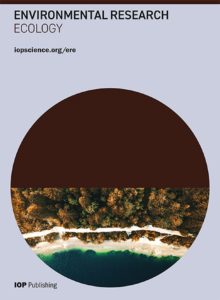ERE特刊征稿|聚焦推进北极生态研究的遥感技术

特刊详情
客座编辑
- Rui Cheng,美国明尼苏达大学
- Daryl Yang,美国橡树岭国家实验室
- Fred Huemmric,美国NASA戈达德太空飞行中心
- Peter Nelson,美国阿科底亚国家公园Schoodic学院
- Shawn Serbin,美国NASA戈达德太空飞行中心
主题范围
Here we propose a focus collection to tackle the scaling issues for better observing and understanding Arctic ecology. We invite studies that couple field data with remote sensing (e.g., spectral imaging, thermal imaging, LiDAR, UASs) across scales to study the effects of spatial, temporal, and/or spectral scaling on understanding the complexity of Arctic ecosystems. We especially welcome contributions that can provide ground-breaking understandings to guide the future deployment and use of remote sensing technologies in the Arctic.
Key areas covered:
- Terrestrial ecosystems in the Arctic
- Aquatic ecosystem in the Arctic
- Permafrost
- Remote sensing
- Plant functional traits
- Carbon cycling
- Heterogeneity of Arctic Ecology
- Spatiotemporal representativeness of remote sensing
投稿流程
特刊文章与ERE期刊常规文章遵循相同的审稿流程和内容标准,并采用同样的投稿模式。
有关准备文章及投稿的详细信息,可以参阅IOPscience页面的作者指南。
作者可登入期刊主页进行在线投稿,在“文章类型”中选择“特刊文章”,并在“选择特刊”的下拉框中选择“Focus on Remote Sensing Scaling for Advancing Arctic Ecology Research”。
投稿截止日期:2024年12月31日。
期刊介绍

- Environmental Research: Ecology(ERE)是一本多学科、金色开放获取的期刊,致力于以关于全球变化、弹性、减轻和适应影响的兼具科学进展和评估的方式,解决在环境科学、大尺度生态学、生物多样性和保护的交界领域的重要全球挑战。本刊为促进环境科学家、生态学家、资源管理者和政策制定者的对话提供了论坛。本刊鼓励所有的研究方法,包括定量、定性、实验、理论和应用方法。
